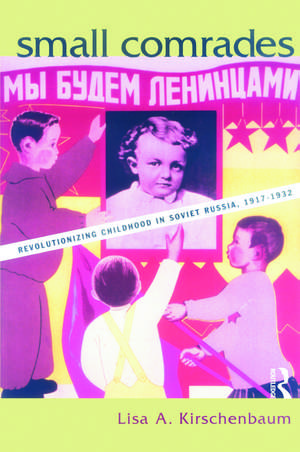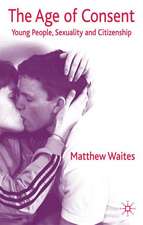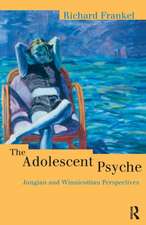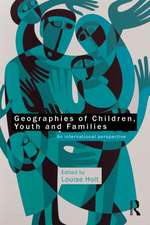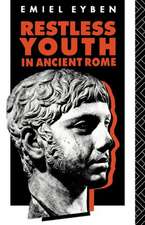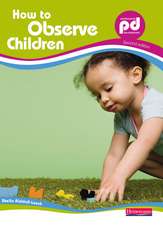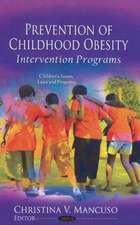Small Comrades: Revolutionizing Childhood in Soviet Russia, 1917-1932
Autor Lisa A. Kirschenbaumen Limba Engleză Paperback – 8 dec 2000
Preț: 330.86 lei
Preț vechi: 424.87 lei
-22% Nou
Puncte Express: 496
Preț estimativ în valută:
63.31€ • 66.28$ • 52.38£
63.31€ • 66.28$ • 52.38£
Carte tipărită la comandă
Livrare economică 05-19 aprilie
Preluare comenzi: 021 569.72.76
Specificații
ISBN-13: 9780815339458
ISBN-10: 0815339453
Pagini: 242
Ilustrații: 8 color images
Dimensiuni: 152 x 229 x 17 mm
Greutate: 0.4 kg
Ediția:New.
Editura: Taylor & Francis
Colecția Routledge
Locul publicării:Oxford, United Kingdom
ISBN-10: 0815339453
Pagini: 242
Ilustrații: 8 color images
Dimensiuni: 152 x 229 x 17 mm
Greutate: 0.4 kg
Ediția:New.
Editura: Taylor & Francis
Colecția Routledge
Locul publicării:Oxford, United Kingdom
Recenzii
"Lisa A. Kirschenbaum's Small Comrades offers a bird's eye view of Bolshevik theory and life in the 1920's. While examining early childhood education in the new Soviet society, it also reflects on Bolshevik social practices after the revolution, charts the decline of utopian schemes for liberating women and children, and describes the triumph of work during the first Five-Year Plan. ... This in-depth review of early childhood education will interest students in Soviet history and women's studies courses, as well as those studying pedagogical theory in schools of education." -- Slavic Review
Cuprins
Introduction: Real and Imagined Children Part One: The Kindergarten and the Revolutionary Tradition in Russia 1. Pedagogy and Politics Part Two: The Children of October and the Civil War 2. Save the Children 3. The Family as Fiction 4. The Nature of Childhood Part Three: Rethinking Revolution and Childhood, 1921-1932 5. The Withering Away of Kindergarten 6. Rescripting Childhood 7. Thank You, Comrade Stalin, for Our Happy Childhood Conclusion Postscript: Three Childhoods
Descriere
Small Comrades is a fascinating examination of Soviet conceptions of childhood and the resulting policies directed toward children. Working on the assumption that cultural representations and self-representations are not entirely separable, this book probes how the Soviet regime's representations structured teachers' observations of their pupils and often adults' recollections of their childhood. The book draws on work that has been done on Soviet schooling, and focuses specifically on the development of curricula and institutions, but it also examines the wider context of the relationship between the family and the state, and to the Bolshevik vision of the "children of October"
